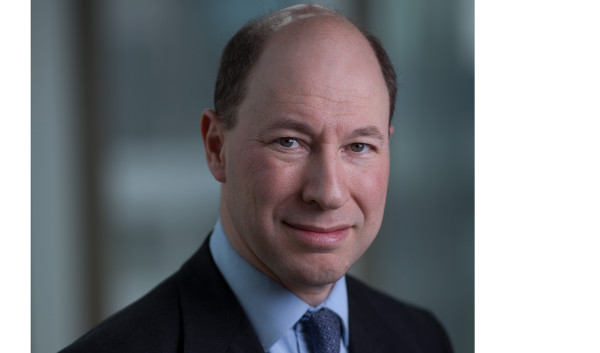

Mr Curtis has been at the helm of City of London, a UK equity income fund, for 26 years, and it has increased its dividend for each of the past 51 years.
But it is only this year his mother in law has invested.
The fund manager said the lady in question, an inexperienced investor, had grown exasperated by the low rates offered on a cash Isa, and had turned turned to his trust, among others, for income.
The yield on the City of London investment trust is 4 per cent, and to ensure future income for his mother-in-law and other investors, Mr Curtis has been buying UK property shares.
He has invested in the the two largest UK property Real Estate Investment Trusts, Land Securities and British Land.
However both companies have substantial exposure to the central London property market, about which there has been considerable negativity since the UK voted to leave the EU.
Mr Curtis said the shares trade at a discount to the value of their net assets, yet when prime central London property, of precisely the type owned by these companies is actually sold, it tends to be bought by overseas investors paying a premium to the value at which the companies had valued the assets in their accounts.
So Land Security and British Land shares, according to Mr Curtis, trade at below the value of the assets owned by the company, yet when assets of a similar kind come to market, the assets trade at premiums, creating, in his view, an opportunity.
He has also invested in a number of much smaller property companies for income, including Tritax BigBox, a real estate investment trust that owns self-storage units, and Supermarket Income REIT. which owns buildings leased to supermarket companies.
Oliver Brown, who runs the £9.8m MFM UK Primary Opportunities fund, is also keen on Supermarket Income Reit.
He said: “We like the defensive qualities it offers by buying core supermarket sites. It is one area of the property market that has seen yields drift out over the last couple of years whilst yields have been compressed in the other property sectors as investors hunt for income.
"We like the focus of the company on this niche, and arguably overlooked sector. Yield of 5.5 per cent too. They have already deployed the cash raised at IPO and we expect them to raise further cash over the next 12 months.”
Mr Curtis is not the only investor to have alighted upon UK property as a source of income, with Mark Barnett, who runs the £5bn Invesco Perpetual Income fund, among other mandates, increasing his exposure to the small cap property companies.
Mr Curtis said there is much greater clarity on the outlook for UK dividends than a year ago.
He said: “In 2016 there were people wondering whether the HSBC dividend was sustainable, or whether the dividends of the big oil companies would be cut, those fears have been allayed.”
William Meadon, who runs the JPMorgan Claverhouse Investment Trust, which has increased its dividend for each of the past 44 years, said “no one thinks the oil companies are going to cut their dividends now”.
James Pigotts, who runs Pigotts Investments, an adviser firm in Dorking, said: “Job is a steady Eddie! It works for income investors and for lower risk capital preservation portfolios. Income should always be part of any portfolio and City produces a reasonable yield with lower risk than most equity trusts.
"The 50 years of increasing dividends makes it a flagship. Investment trusts are great for income as they can smooth any bumps when companies fail to pay dividends, and we have had plenty of those recently! Can't fault it really."
David.Thorpe@ft.com




